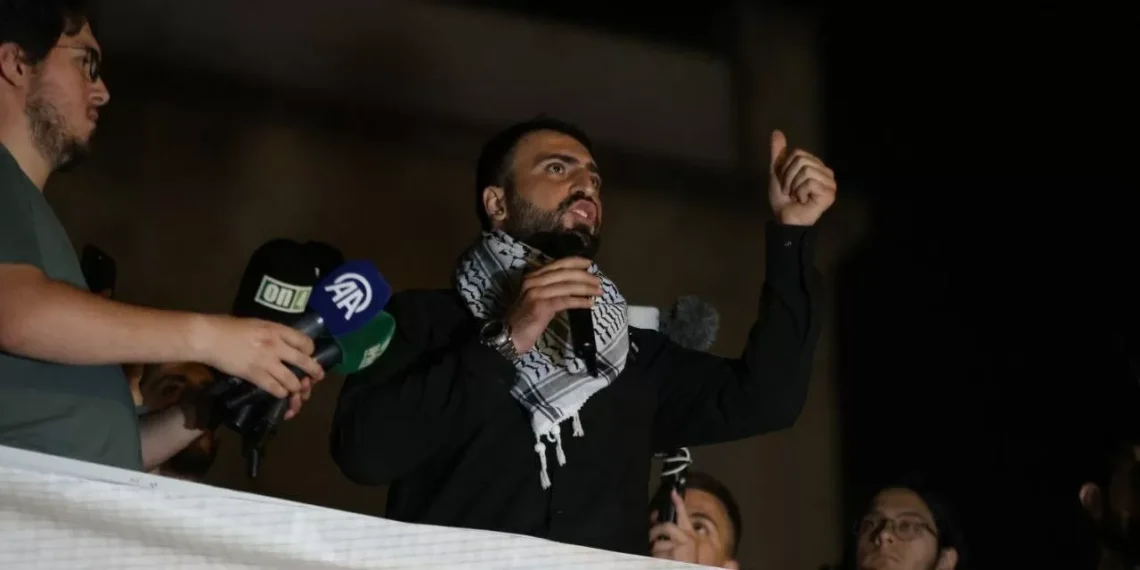Turkey has long been known for its vocal support of the Palestinian cause, with President Recep Tayyip Erdogan often condemning the Israeli occupation and advocating for the rights of Palestinians. However, recent actions by Turkish officials have raised questions about the sincerity of this support.
In a move that has shocked many, Turkish authorities have blocked a ship from leaving Istanbul that was intended to break the siege on Gaza and deliver much-needed aid to the Palestinian people. This decision has left many wondering if Turkey’s support for Palestine is merely lip service or if there is a deeper agenda at play.
The ship, named the “Mavi Marmara,” was set to sail to Gaza as part of the “Freedom Flotilla” – a humanitarian aid mission organized by the Free Gaza Movement. The goal of the mission was to bring attention to the ongoing blockade of Gaza and to provide essential supplies to the people living under siege.
The Mavi Marmara has a history of being at the center of controversy. In 2010, it was the lead ship in a similar flotilla that was attacked by Israeli forces, resulting in the deaths of 10 activists. This time, however, the ship was not met with violence from Israel, but rather was stopped by Turkish authorities.
The decision to block the ship from leaving Istanbul has been met with widespread criticism, with many questioning Turkey’s commitment to the Palestinian cause. The Intercept, a news organization known for its investigative journalism, published an article titled “They Planned to Deliver Aid to Gaza by Sea – Then Turkey Shut Them Down,” shedding light on the situation.
The Intercept’s article highlights the irony of Turkey’s actions, given its strong stance against the Israeli blockade of Gaza. The piece also delves into the possible motivations behind Turkey’s decision, including its strained relationship with Israel and its desire to maintain its alliance with the United States.
The Intercept spoke to several activists who were on board the Mavi Marmara, including Kevin Neish, a Canadian activist who was also on the ship during the 2010 flotilla. Neish expressed his disappointment and frustration with Turkey’s actions, stating, “It’s a betrayal of the Palestinian people and a betrayal of the people who were killed on the Mavi Marmara.”
The article also highlights the reactions of other activists and organizations involved in the Freedom Flotilla, who have condemned Turkey’s decision and called for the ship to be allowed to sail. The Turkish government, however, has remained silent on the issue, leaving many to speculate about the reasons behind their actions.
Some have suggested that Turkey’s decision was influenced by its strained relationship with Israel, which has been deteriorating in recent years. Others believe that Turkey is trying to maintain its alliance with the United States, which has been a strong supporter of Israel and has been critical of the Freedom Flotilla in the past.
Whatever the reason may be, one thing is clear – the Palestinian people are the ones who will suffer the most from this decision. The blockade on Gaza has been ongoing for over a decade, causing immense suffering and hardship for the people living there. The aid that was meant to be delivered by the Mavi Marmara could have made a significant difference in their lives.
The Intercept’s article sheds light on the hypocrisy of Turkey’s actions and calls for the government to reconsider its decision. It also serves as a reminder that true support for the Palestinian cause goes beyond mere words and requires concrete actions.
In conclusion, while Turkey may continue to loudly proclaim its support for the Palestinian people, its recent actions have raised doubts about the sincerity of this support. The Intercept’s article serves as a wake-up call for Turkey to stay true to its principles and stand in solidarity with the people of Palestine. The blockade on Gaza must end, and the Mavi Marmara should be allowed to sail and deliver the much-needed aid to those in need. It is time for Turkey to show its true commitment to the Palestinian cause and take a stand against injustice and oppression.







